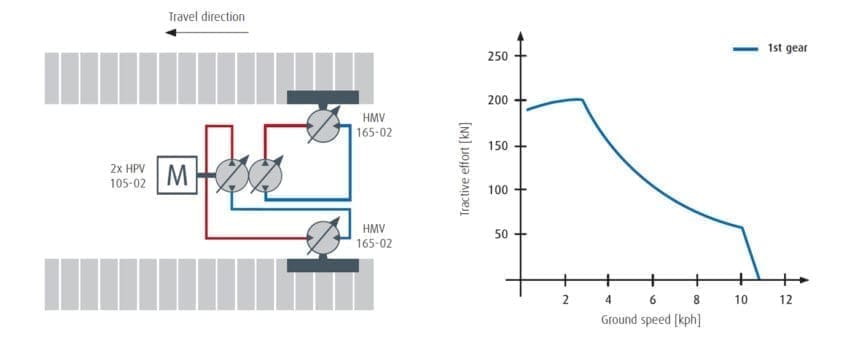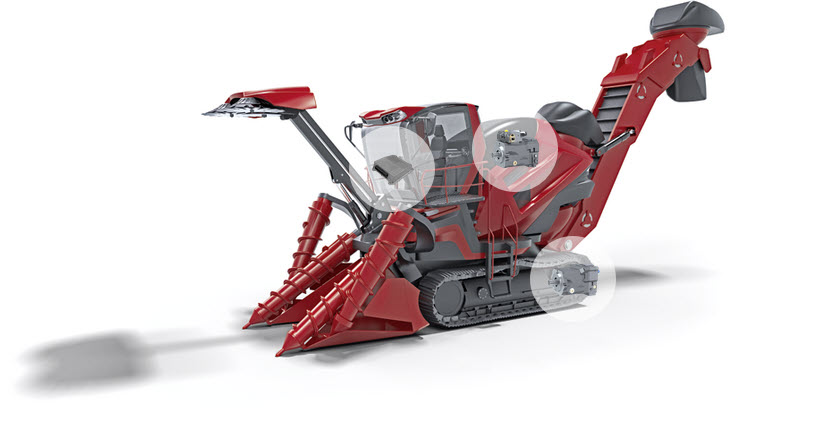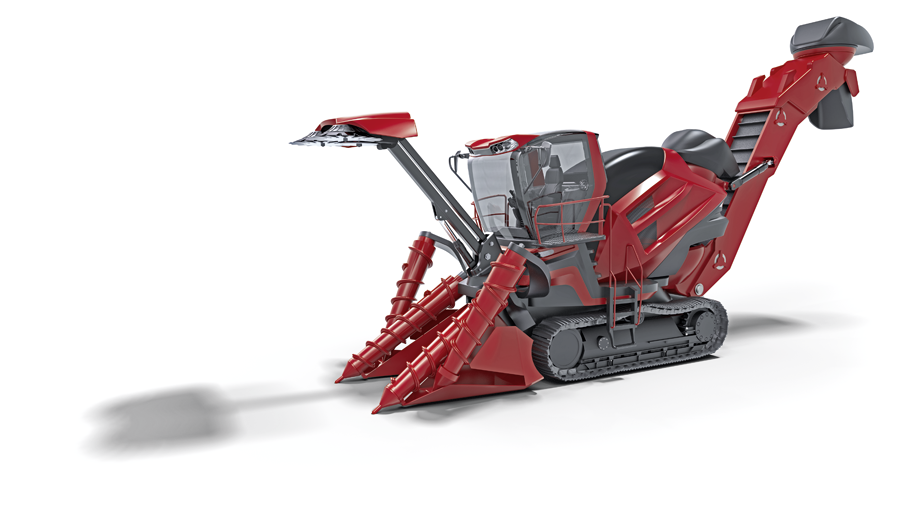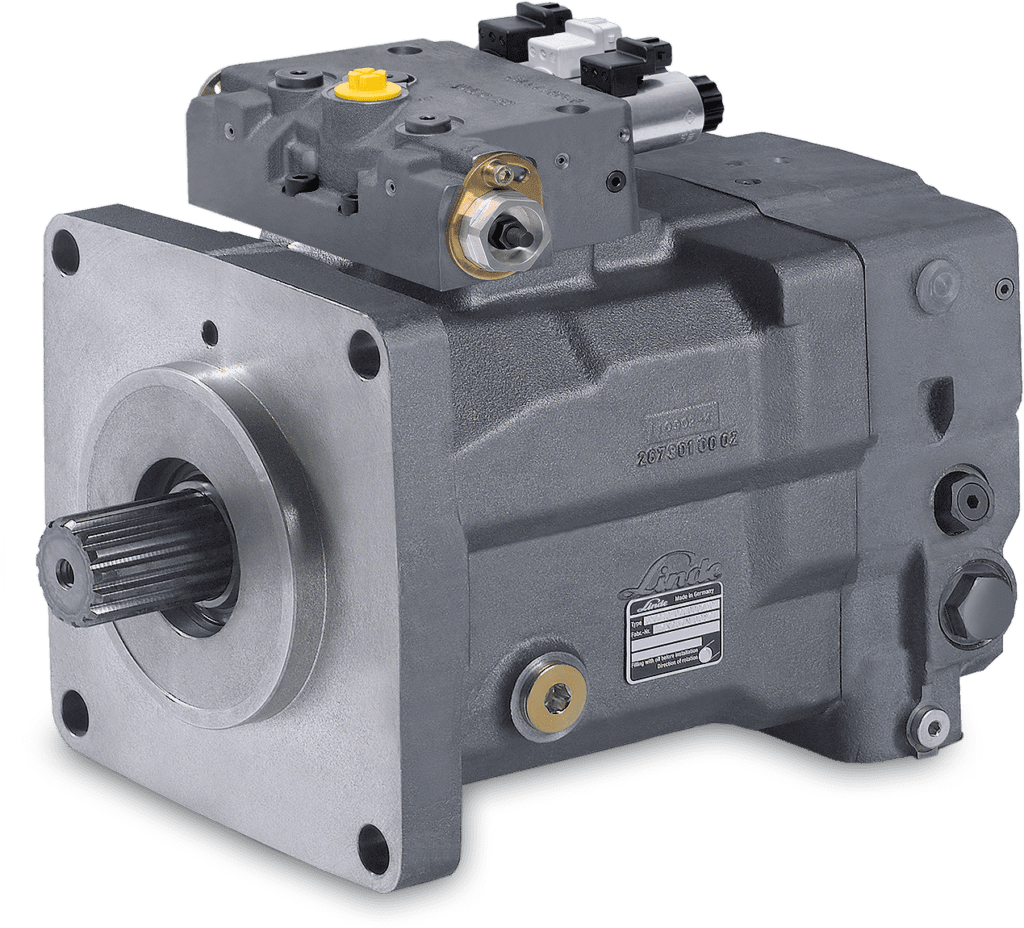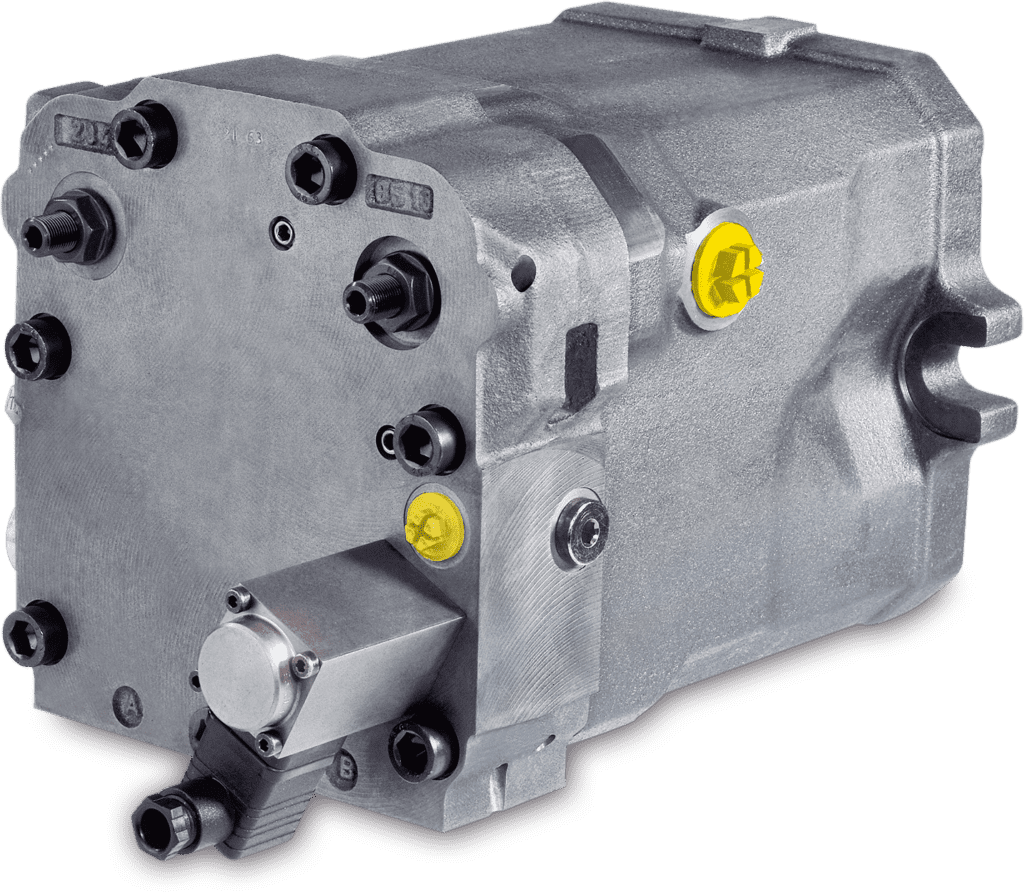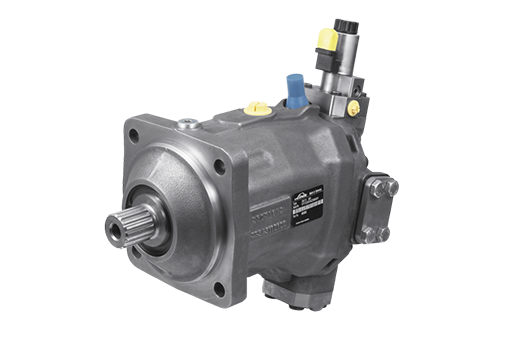150 kW - 300kW
260 kW, 18 t, tractive effort 200kN, ground speed 10 km/h
2x HPV 105-02 E1 (Propel drive)
2x HMV 165-02 (Propel drive)
1x iCon (electronic control unit)
- Hydrostatic drive system without splitter gearbox eliminates the necessity of a shift gearbox
- Soil protection
- Precise, controlled directional stability and wear-free steering
- Other tracked harvesting machines for short rotation
forestry or water-intensive crops like rice - Wheeled variants for fast on-road travel
- Mechanical track drive with hydraulic steering
Sugar Cane Harvester
Tracked harvesting machines offer advantages over wheeled variants in terms of stability, traction and soil protection, especially in difficult terrain comprising soft, wet soil such as on rice, soya and sugar cane plantations.
The sugar cane harvester drive depicted here is based on Linde Hydraulics' many years of experience in equipping construction machines. The dual circuit concept depicted sets standards for tracked machines and operates without a splitter gearbox. This special solution comprising standard components is characterised by an impressive level of durability and robustness, as well as low fuel consumption levels. It is also particularly gentle on soil — either when driving in straight lines or in curves. All this combined with outstanding ease of operation.
Controlled directional stability is just one example. The hydrostatic units can be easily integrated into the overall design of the machine and enable optimum interaction between driving speed, crop intake, shredding and transportation.
Furthermore, the hydrostatic system is always powerful enough to drive continuously through dense crops. They are also extremely rugged, allowing the machines to make it right through the harvesting season with a low amount of planned maintenance time. The result: many tonnes of crops harvested in line with specifications and using little fuel.
